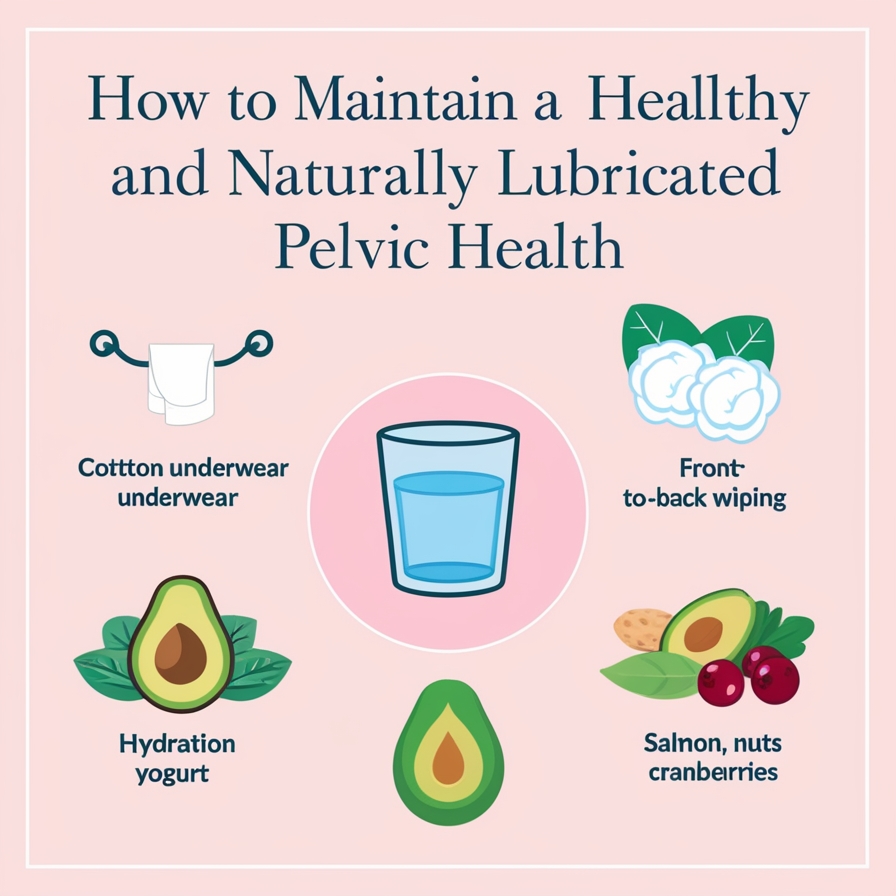A healthy vagina is essential for overall well-being, confidence, and comfort, meanwhile many women experience discomfort due to infections, dryness, or irritation often because of poor hygiene, diet, or lifestyle habits, your vaginal health is influenced by many factors, including pH balance, hydration, and the foods you eat.
If you have ever wondered how to keep your vagina healthy, fresh, and naturally lubricated, this guide will provide you with science backed tips and nutrition advice to maintain optimal vaginal health.
1. Proper Hygiene for Vaginal Health
Maintaining good hygiene is the first step to preventing infections and ensuring your vagina stays fresh, many women make the mistake of using harsh products or douching, which can disrupt the vagina’s natural balance.
Wash with mild, unscented soap and warm water. Only cleanse the external area (vulva) The vagina is self cleaning and does not require internal washing.
Avoid douching. It disturbs the natural pH level, which can lead to bacterial vaginosis and yeast infections.
Always wipe front to back. This prevents bacteria from the anus from entering the vagina, reducing the risk of infections.
Wear breathable cotton underwear. Tight or synthetic underwear traps moisture and heat, creating an environment for bacteria and yeast to grow.
Change sanitary products regularly. Whether using pads or tampons, change them every 4-6 hours to avoid bacterial overgrowth.
Practice safe sex. Use condoms to prevent sexually transmitted infections (STIs) and urinate after sex to flush out bacteria.
2. The Role of Diet in Vaginal Health
The foods you eat impact your vaginal pH, lubrication, and overall well-being, a balanced diet rich in nutrients helps maintain natural moisture, prevents infections, and supports good bacteria like Lactobacillus, which keeps the vagina’s pH at an optimal level (3.8–4.5)
Best Foods for a Healthy and Naturally Lubricated Vagina
Water. Staying hydrated is essential for vaginal lubrication, a dry body leads to a dry vagina, aim for at least 8 glasses of water daily.
Probiotic-rich foods. Foods like yogurt, kefir, kimchi, sauerkraut, and kombucha contain beneficial bacteria that maintain a healthy vaginal microbiome, these help prevent yeast infections and bacterial vaginosis.
Avocados. High in healthy fats, vitamin E, and potassium, avocados help increase vaginal moisture and elasticity.
Sweet potatoes. Rich in beta-carotene and vitamin A, which support mucous membrane health and keep vaginal tissues hydrated.
Dark leafy greens (spinach, kale, collard greens). These are loaded with magnesium, which improves blood circulation, enhances lubrication, and reduces vaginal dryness.
Fatty fish (salmon, sardines, mackerel). Omega-3 fatty acids improve blood flow and keep vaginal tissues healthy and well-lubricated.
Flaxseeds and chia seeds . Rich in omega-3s and phytoestrogens, which help balance hormones and improve natural lubrication.
Watermelon and cucumbers. High water content helps keep vaginal tissues hydrated.
Nuts (almonds, walnuts). Contain vitamin E and zinc, which promote good circulation and natural lubrication.
Cranberries. Well known for preventing urinary tract infections (UTIs), cranberries contain antioxidants that keep the urinary and vaginal tract healthy.
Dark chocolate (70% or higher cocoa). Contains flavonoids that improve blood flow and may help with natural vaginal moisture.
Soy-based foods (tofu, edamame, soy milk). Contain phytoestrogens that mimic estrogen and help with vaginal dryness, especially in menopausal women.
3. Signs of an Unhealthy Vagina
It is essential to recognize when your vaginal health is off balance, here are some signs that indicate you may need to adjust your hygiene, diet, or see a healthcare provider





If you experience persistent symptoms, consult a gynecologist for proper diagnosis and treatment.
4. Natural Remedies for Vaginal Health
In addition to good hygiene and a healthy diet, natural remedies can help maintain vaginal health:
Aloe Vera Gel. Helps soothe irritation and dryness, apply a small amount externally.
Coconut Oil. A natural moisturizer for vaginal dryness (safe for external use)
Apple Cider Vinegar. Helps balance pH levels when added to bath water (1-2 tablespoons in warm water)
Garlic. Has natural antibacterial and antifungal properties to fight infections when consumed regularly.
Conclusion
Maintaining vaginal health is about balance—proper hygiene, a nutrient-rich diet, and recognizing signs of discomfort early, by incorporating hydrating, probiotic, and nutrient-rich foods, you can promote natural lubrication and keep your vagina healthy.
Remember, your vagina is naturally designed to take care of itself, support it with the right habits and nutrition, and it will stay fresh, healthy, and naturally lubricated.

